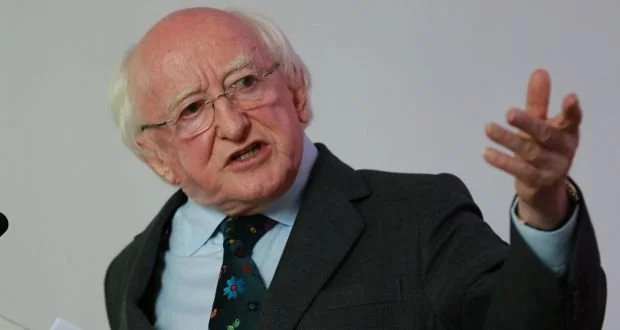For and Against: Should Irish citizens abroad have the right to vote in Presidential Elections
Early in 2017 the then-Taoiseach Enda Kenny, speaking in Philadelphia, announced a referendum on whether to grant citizens abroad the right to vote in presidential elections. Here we consider the argumentsFor: Lucas BrunThere are practical reasons why citizens abroad should be entitled to vote. Some say that these people will not be affected by their choice, and therefore, should not have voting rights. But this cannot be said of all expats. Some people are temporary emigrants, who will face the consequences of Irish politics when they fly back. Why couldn’t they be able to voice their opinion?This of course shouldn’t be the main focus of the argument. Citizens abroad should have the right to vote as a matter of principle. If the logic states that you should not being eligible to vote because you will not face the consequences, then this shows a very troubling view of the act of voting. It paints voting as an incredibly self-serving, individualist, and egotistical act. But voting is not meant to be selfish. Voting should not simply be seen as something you do in order to serve your own interests. Voting serves to set about a common vision that is beneficial to the entire community. Voting for the protection of minority rights when you do not belong to a minority, voting for the rights of workers as a business owner, voting for the abolition of student fees as a pensioner, are considered to be the right things to do, and isn’t seen as problematic. So why is allowing an expatriate to try and improve the life of their compatriots such a hot topic? Calling an expatriate citizen selfish for voicing an opinion, and for helping make decision that will affect their family, their friends, and fellow citizens, is a little too easy.To determine whether citizens should have the right to vote, we should also look at it from the side of the state, not just the citizen. The state has the responsibility to cater for all of its citizens. One does not surrender their citizenship as soon as they travel across the border. A person is Irish regardless of where they are, and they are still inherently linked to the state. Being a people, a nation, is something that transcends territory. The state cannot forget its citizens, and it has a duty to protect and uphold the rights of all its members. Embassies are not only established to serve as a diplomatic link with the host country, but also to maintain a safety net and serve the citizens of its country. Is it not paradoxical to set up institutions abroad to protect and serve your own people while calling them ungrateful and unworthy of all of their rights as citizens?Questions will be raised, of course, if this is adopted. Such as how this will be done. Will we follow the French model and have new constituencies representing expatriate Irish people and polls in embassies, or follow the US model of mailing-in your ballot straight to the state? But these questions will find an answer, and all that should matter in the coming months is to decide on how we define citizenship and nationhood.Against: Chris McCahillThere are numerous reasons why Irish citizens abroad should not be able to vote in presidential elections. These mainly revolve around the practicalities and obstacles involved in the implementation of such a proposal. Firstly, consider the numbers: the numbers of Irish diaspora swelled massively during the economic downturn following the crash in ‘08. According to the OECD, it is estimated that approximately one in every six Irish born people are currently living abroad. More specifically Joe McHugh, former Minister for the Diaspora, has confirmed that around 1.8 million Irish citizens living abroad and 1.87 million people living in Northern Ireland, would be eligible to vote if the referendum passed. Providing millions of Irish citizens scattered across the globe with ballot papers would surely be an unworkable proposition. Furthermore, when considering this, include the cost, according to the government, the estimated cost of holding the initial referendum (if passed) would be approximately €19.4million, after a register of voters was established. Subsequent votes would then likely cost as much as €21 million. There are far better uses for such funds, especially given current crises in homelessness and housing and healthcare.Furthermore, if such a referendum were passed and voting rights extended, then for presidential elections there would be nearly as many voters outside the country as in it. Voters who would not have to live with the consequences. Granted the stakes in Irish presidential elections are quite low, relatively speaking, as the position is mostly ceremonial; a figurehead with limited powers. The vote could then be skewed by voters abroad who will not have to live with or deal with any potential consequences of their decision. One could also pose the question: why would an Irish person, who could have been living abroad for decades, know enough or (more accurately) care enough to vote in a presidential election, which have little enough impact on the people living in Ireland, and even less on the people living outside of it?Finally, this proposal has not been fully or seriously considered, or thought through properly. There appears little appetite or demand for such an extension of voting rights, and there is a lot of confusion and a lack of concrete proposals over how it will be implemented, and how it should be best organised. This is the crux of the issue, perhaps this referendum was proposed too soon without the proper thought beforehand, which is essential before moving forward with any referendum.


